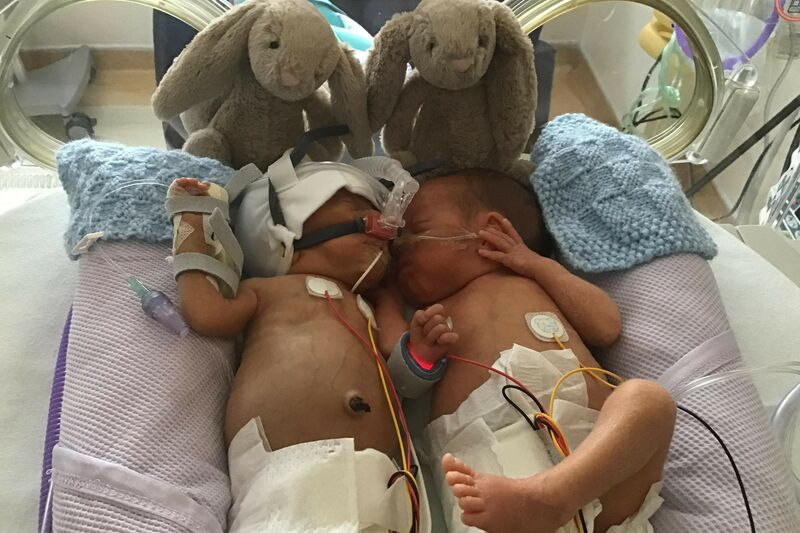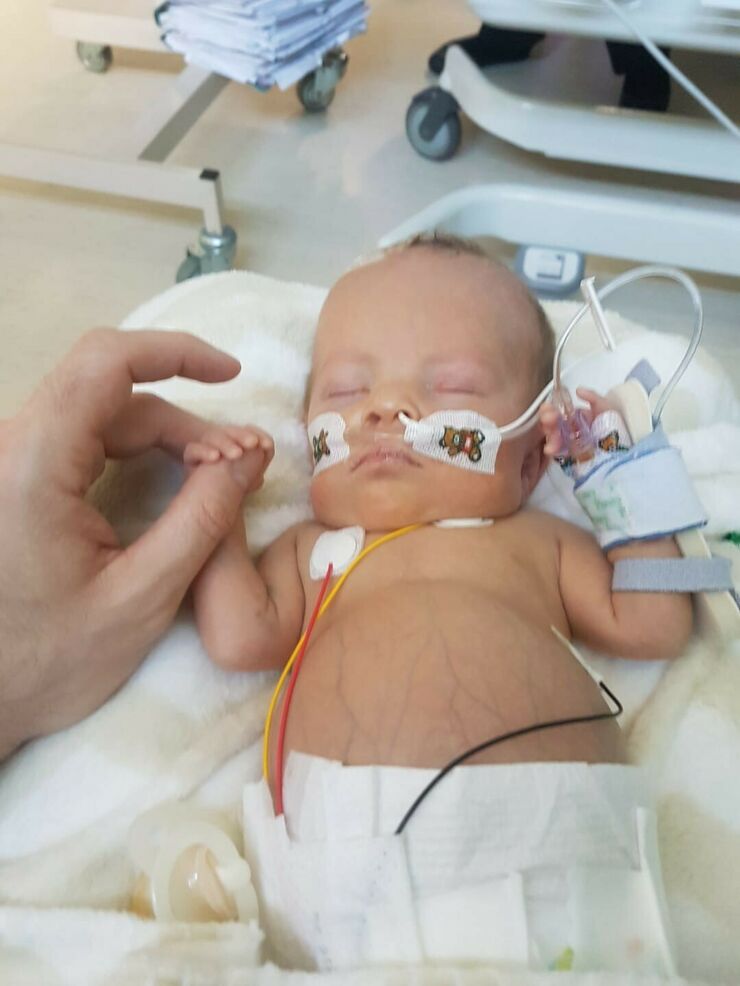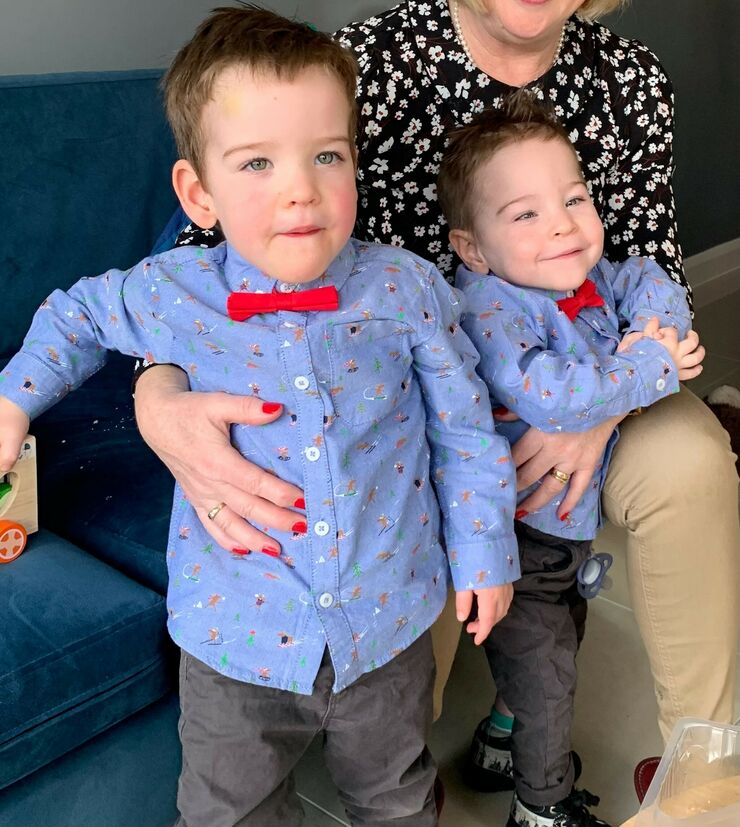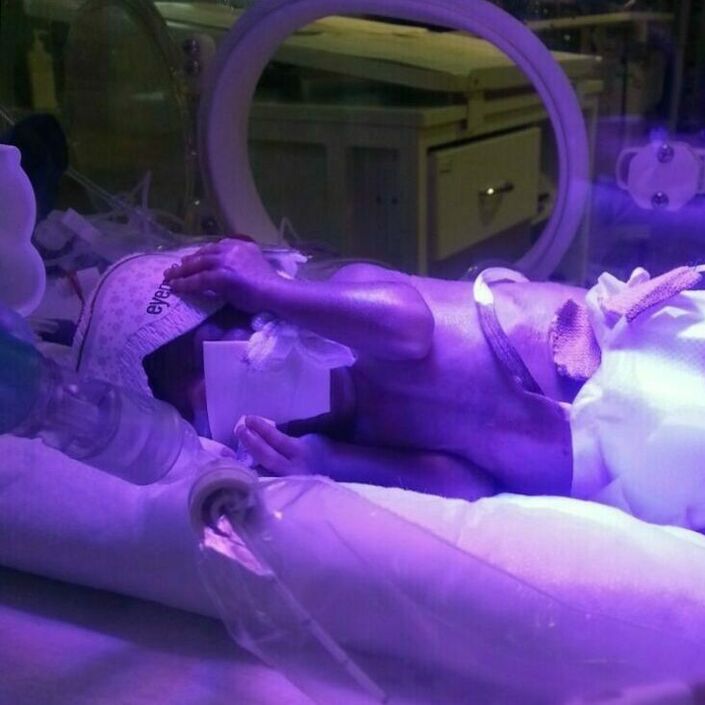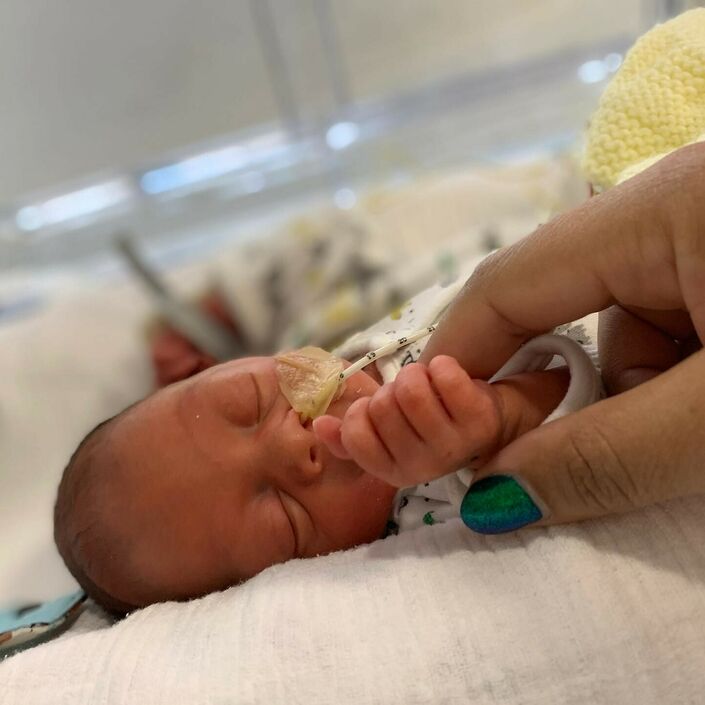Seb was transferred to Birmingham Children’s Hospital in May for neurological and cardiac surgery. Following one operation his stomach swelled again and he wasn’t able to open his bowels without suppositories.
It got so bad that he had to have emergency surgery on his stomach to relieve the pressure, and due to how poorly he was that had to be performed at the bed space in PICU.
For us that 45 minutes felt like forever and his survival rate was unknown, but thankfully he came through it okay.
One of the surgical registrars, Taz, who had been involved and had seen Seb several times, asked whether he had been tested for the rare Hirschsprung’s disease.
They quickly organised to do a test which involved a rectal biopsy, with small pieces of tissue from the bowel taken and sent for analysis.
The biopsy would tell us two things: if he had the disease and how much of his colon was affected.
The test revealed that Seb did have Hirschsprung’s.
Hirschsprung’s disease is a congenital disorder where the nerve cells don’t develop in some or all of the bowel. At the moment the cause is unknown and the main symptoms are constipation, swollen abdomen and vomiting green bile.
Often, babies with the disease don’t pass meconium in the first days after their birth.
To relieve the symptoms Seb underwent more surgery to create a stoma, which helped him to recover. After four months the stoma was reversed and they performed pull-through surgery, where the affected part of the bowel is removed and the healthy part is connected to the anus.
Ben and I were taught how to perform bowel washouts, which we need to do if he doesn’t open his bowels for a day or so - we usually try lactulose first. He takes daily stool softener medication to help.
There is a risk of Hirschsprung’s Enterocolitis if we don’t keep on top of it and it’s important he has plenty of fluid. If we see signs of this then we need to get him to hospital to be checked out.
The signs of enterocolitis are diarrhoea or a stomach bug, a strong smell and frothy stools, as well as vomiting.
Seb still has some issues with his bowel and will take longer to learn to toilet train, both because of the disease and his developmental delay.
We monitor his food intake as he is less tolerant of some things, like white bread, banana and anything that’s hard to digest. His nursery has a list of foods he may be less tolerant too.
With the boys being identical there is a chance that Alex may also have it, but he hasn’t shown any signs or symptoms so we won’t put him through the testing. At some point, we want to have genetic testing to understand more.
Seb and Alex are now three years old and both doing well.
